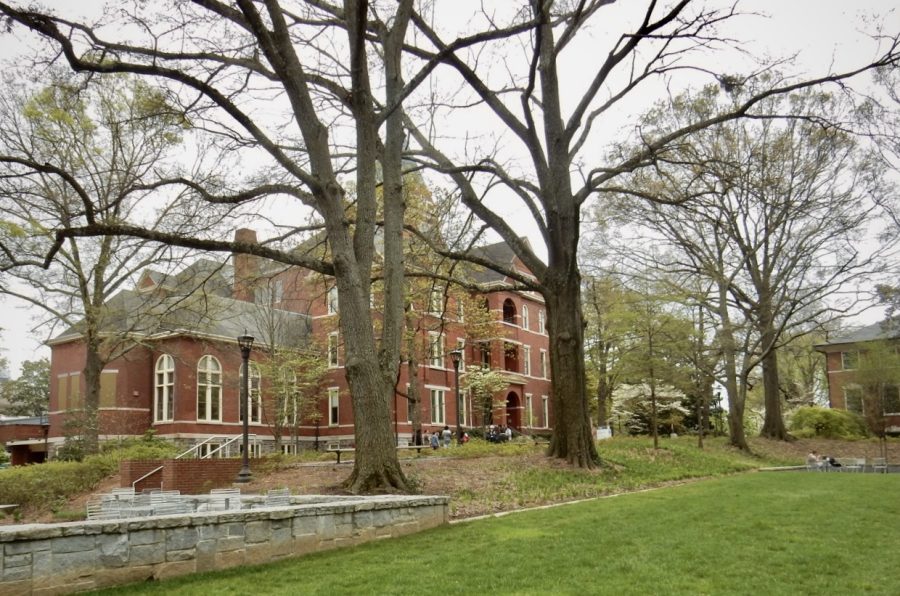How to Get the Most Out of Your College Visits
May 1, 2023
If there is one thing every high school student can relate to, it’s that planning for life after graduation is really intimidating. There’s lots of different paths to choose from, but if you are planning on applying to college, it’s a whole other can of worms to sort through. Deciding where you want to go to school is an important decision, and sometimes it’s difficult to figure out what you are looking for. There’s also a never-ending abundance of options, which can further bury you in paralyzing dread. If you’re facing this challenge, organizing some college visits can be a great opportunity to explore different universities and narrow down your choices.
Where to start? The first step is deciding where you would like to visit. Mrs. McGahan, the Almond College and Career Counselor, suggests selecting a wide range of institutions. “Pick a variety of schools in different locations and different sizes.” This way, even if you end up uninterested in a particular school you visit, you can still get a feel for the type of college that suits you—rural or urban, research-focused or liberal arts, small or large. If you have an area of study in my mind, it could be wise to check beforehand that the schools you visit have those programs. If you are ever traveling, look in the area for potentially interesting schools. Taking a college visit while already on a trip can save you some time and money, and make you consider a new possibility.
To get a tour on the books, visit the website of whatever university you are interested in. There is usually a “Visit” tab, either on its own, or on the admissions page. Most schools have plenty of dates and times available to sign up for a guided tour. Frequently, these are led by current students, allowing you to hear an honest perspective about a university’s advantages and drawbacks. Specific programs within a college may also have tours—I went on a tour of the architecture school at Virginia Tech, and really enjoyed being able to see the nitty gritty of what students were working on.
Even if you can’t make it for an official tour, don’t shy away from exploring campuses on your own. “You don’t have to make a formal visit for every school you see,” says Mrs. McGahan. Going on formal tours is more important as an upperclassmen, when you need important information to narrow down your choices more. Still, there are lots of different ways to do a college visit. Virtual guided tours can take you around the important spots on campus, or you can wander and find them for yourself. Going on formal tours is more important as an upperclassmen, when you need important information to narrow down your choices more.
Once you are on campus, there are many factors to consider regarding whether or not a school is right for you. As mentioned before, many guides are current students. Asking your guide questions may give you insight into what life at the school is really like. Even if your guide isn’t a student, finding a current student, especially in your major, and hearing what they have to say is valuable. Creating a list of general questions, as well as doing research on the school to write specific questions, will help you get more out of each tour. Here are some sample questions:
- What is your favorite part about going to [university]?
- Which extracurriculars are popular at this school?
- What are classes like?
- Do you feel safe on campus?
- Are the professors in [major] engaged with the students?
- Where do you like to hang out on campus?
Lots of other details can give you hints about whether you’d enjoy attending a college, but some things may also obscure this. Look around at other students, and ask whether you can picture yourself as one of them. Do they look happy? Do you like the feel of the campus? Is the college improving their facilities? You may want to explore dining halls, academic buildings, and downtown areas on your own to get a sense of the full scope of life at each college. However, factors like weather and the quality of your guide may skew your perception when visiting. During the school year, more students will be on campus, creating a more lively environment.. “The time of year you visit can be a detriment. Be conscious of that,” Mrs. McGahan recommends. You can’t control all of these things, but being aware of them will help you make more accurate judgments about each school, because of its merits, not the clouds in the sky for a couple days each year.
After you’ve visited, try to write down your thoughts about the university—the academics, campus, student life, and any other observations. Mrs. McGahan says, “Take a moment of reflection. That immediacy is important when it’s fresh.” Especially if you are visiting many schools close together, reflecting on your experience as soon as possible will prevent you from forgetting or mixing up important details about the university. These reflections will be important resources when you are further into your college application and decision making processes.
College visits can help guide you to decisions in your college process by showing you what you would really enjoy in your future. If you plan properly and commit to fully exploring a university when you visit, these trips can be invaluable experiences to explore your future and new places! Happy touring.
If you are interested in a college tour next spring, consider signing up for the Artis Yancey HBCU Tour, held by Waukegan Township; scholarships are available. Thank you to Mrs. McGahan for her time and advice!









